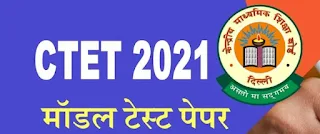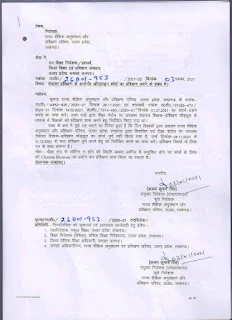सीबीएसई द्वारा केंद्रीय शिक्षक पात्रता परीक्षा (CTET) वर्ष में
दो बार आयोजित की जाती है पहली परीक्षा जुलाई माह में जबकि दूसरी परीक्षा नवंबर में आयोजित होती है।
इस साल कोरोना के चलते नवंबर में होने वाली सीटेट परीक्षा अब 16 दिसंबर 2021 से 13 जनवरी 2022 तक ऑनलाइन CBT मोड मे ली जाएगी।
यदि आप भी CTET परीक्षा में शामिल होने जा रहे हैं तो इस आर्टिकल में दी गई जानकारी आपके लिए बेहद महत्वपूर्ण है।
केंद्रीय शिक्षक पात्रता परीक्षा (CTET) शुरू होने में अब एक माह से भी कम समय रह गया है ऐसे में परीक्षा की तैयारी कर रहे उम्मीदवारों को अपना रिवीजन शुरू कर देना चाहिए।
हम रोजाना CTET परीक्षा के विभिन्न टॉपिक्स पर मॉक टेस्ट/ रिवीजन क्वेश्चन शेयर कर रहे हैं और इसी श्रंखला में आज हम CTET पेपर 1 तथा पेपर 2 हेतु इंग्लिश पेडगॉजी के कुछ महत्वपूर्ण संभावित प्रश्न शेयर कर रहे हैं।
आपको बता दें कि परीक्षा में इंग्लिश भाषा सेक्शन से 30 सवाल पूछे जाते हैं जिसमें से 15 प्रश्न पेडगॉजी (Pedagogy of Language Development) से संबंधित होते हैं तथा 15 प्रश्न Comprehension के होते हैं जिसमें दो unseen prose passages, एवं grammar/verbal ability के सवाल पूछे जाते है।
English Pedagogy Expected Questions for CTET Paper 1 and Paper 2
Q1. which of the following is a technique of assessment?
(a) Rubrics
(b) Interview
(c) Checklist
(d) Rating scale
Ans- (b)
Q2. Dictionary is a very important tool for learning a language which of the following is least important about the use of dictionary?
(a) check the spelling of words.
(b) looking at the meaning of a word.
(c) check the passive voice of a word.
(d) check the part of speech of a word.
Ans- (c)
Q3. The theory of Universal grammar was formulated by:
(a) Stephen Krashen
(b) Steven pinker
(c) Jean Piaget
(d) Noam Chomsky
Ans- (d)
Q4. learners need to brainstorm ideas, organise them, draft, edit and revise their work this is a process of ____.
(a) listening
(b) speaking
(c) writing
(d) reading
Ans- (d)
Q5. Pause, stress and intonation are associated with ____.
(a) comprehension
(b) speaking
(c) writing
(d) silent reading
Ans-(b)
Q6. Holistic ambulation of the learner is done by ___.
(a) comprehensive and continuous evolution.
(b) session and evaluation
(c) Term evaluation
(d) unit evaluation
Ans- (a)
Q7. English is considered to be the second language in our state because it is_____.
(a) only available at home
(b) only available in the school
(c) available in the school and surrounding
(d) available everywhere
Ans-(c)
Q8. What is the respective skill of language?
(a) listening and reading
(b) listening and reading
(c) speaking and writing
(d) understanding and writing
Ans- (a)
Q9. Non – detailed text develop……..
(a) intensive reading
(b) extensive reading
(c) critical reading
(d) slow reading
Ans-(b)
Q10. which of the following is a faulty habit of silent reading?
(a) drawing reference
(b) finding the meaning of words through context
(c) progressive eye movements
(d) reading the text word per word
Ans- (d)
Q11. Teaching grammar should focus on……….
(a) rules of language
(b) form and structure of language
(c) the communicative function of language
(d) both structures and rules of language
Ans- (b)
Q12. the objective of ____is to listen and write.
(a) note-making
(b) note-taking
(c) course reading
(d) silent reading
Ans- (b)
Q13.’skimming’ is a subskill of :
(a) listening
(b) reading
(c) writing
(d) speaking
Ans-(b)
Q14. effective learning takes place when the learners are :
(a) passive
(b) quiet
(c) interactive
(d) good at preparing for the examination
Ans-(c)
Q15. which is not a guiding principle of NCF 2005?
(a) connecting knowledge to life outside the school
(b) ensuring children provided job opportunity
(c) ensuring learning shifted away from the rote methods
(d)making examination more flexible
Ans-(b)










